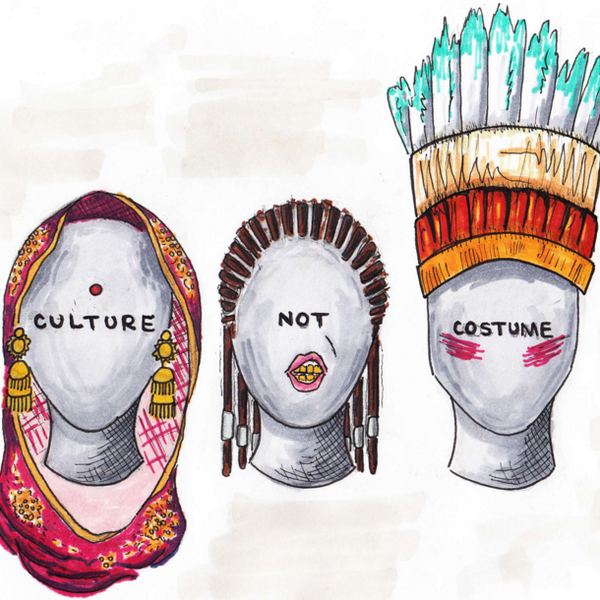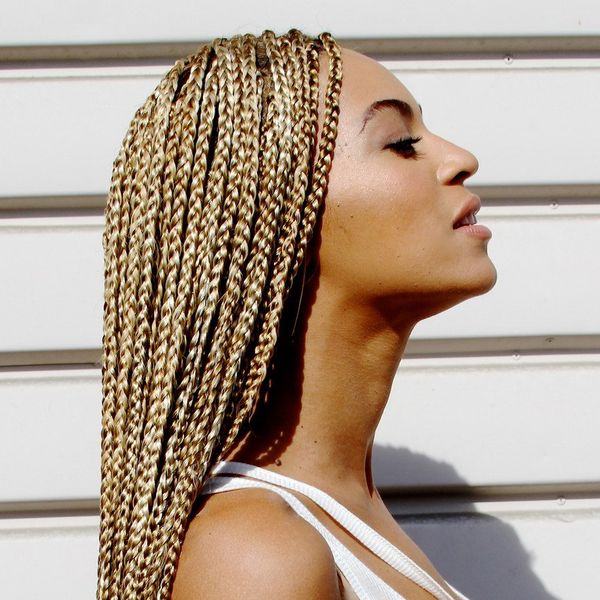When it comes to beauty, there is certainly the impression that women love makeup, clothing, and hair. This is pretty accurate to some extent, but we fail to realize that beauty seems to have a base standard--and it shouldn't. Whenever I turn on the TV, I'm swarmed with commercials of white women advertising products to help them look "natural," products that work "no matter what hair you have." I always laugh when they come on because clearly they haven't done their research. Among many issues, a big problem with basing beauty upon a single type of person, is that there is going to be a large population of people that is excluded, and it seems to be the case that the people left out, especially in terms of beauty, are women of color.
When it comes to advertising products, whether they be hair products, bras, or something in between, I often find myself and others who look like me are left out. There are certainly brands that cater to hair textures and bodies like mine, but why are they not being advertised? Why is it that dreadlocks are desired on white people but are viewed to smell like "patchouli oil or weed" on black people to quote Giuliana Rancic. Another example of the bias is when Kendall Jenner posted a picture to Instagram of her in cornrows saying that "white girls do it better." Good luck finding it though, because it was taken down after she got called out for it (as she should have been).
I have no problem with people other races studying other cultures and possibly even trying out different looks, religions, and other beliefs, but the problem lies when they suddenly try to claim it and decide that they can pull it off better without even bothering to learn the history of what they're taking. The world we're growing up in is one founded on the system of taking something from another person and calling it your own--theft. Theft occurs not only involving land or other such properties, but also with cultures. Cultural appropriation is a serious problem and it's one that isn't being addressed. From telling white women how to "achieve an Afro" in Allure Magazine to Kimberly Stewart posing in nothing but a Native American Headdress to Rachel Dolezal pretending to be black, this country in general has a problem with wanting to be a part of a culture without wanting the stigma associated with that culture.
A big issue I see with cultural appropriation aside from the obvious is that when it happens, we tend to shame the people who call the appropriators out as opposed to calling out those who started the problem. By telling those of us who stand up for ourselves that we should just be silent or else we'll be shamed, we are promoting a generation of people who will always stay silent. If there's one thing that's very clear, staying silent in times of distress gets us nowhere, and if anything, it just moves us farther back. We need to start applauding the people who publicly make it clear that cultural appropriation is wrong and will not be tolerated. Until that happens, those who are in the wrong will continue to do what they do because no one is telling them they shouldn't. The media today feeds off arguments, especially loving the girl-on-girl cat fights, whether it be between Nicki Minaj and Taylor Swift or Amandla Stenberg and Kendall Jenner. We give them exactly what they want by fighting, and in many cases, the disagreements are valid. It becomes a serious issue when instead of getting to the root of the argument, we put two women against each other because people love a fight. If we began to learn from what they were arguing about to begin with, there would be fewer arguments.
Regardless of how many cornrows you put in your hair, you aren't going to ever know the struggle of combing it out. Regardless of how desperately you want to be black, you're probably not going to be stopped and frisked. My point is that no matter which parts you pick and choose of a culture, if you aren't part of it, you never will be. Appreciating something is completely different from appropriating it, and it's about time we learned the difference.





















